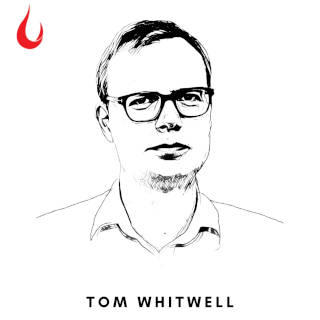[Image by Michal Jarmoluk from Pixabay]
Good morning,
We spent some time yesterday poring over the meticulously researched Emergency Chronicles: Indira Gandhi and democracy’s turning point by Princeton-based historian, Gyan Prakash. He recreates in much detail how the masses revolted when Sanjay Gandhi attempted to enforce birth control on India’s male population.
“In a patriarchal society, the fear of the loss of masculinity sparked discontent and resistance, compelling the government to muster the police to enforce Sanjay’s program of birth control. Violence broke out in a number of places as people evaded or openly challenged forced sterilization. In Uttar Pradesh, the police had to be summoned in several towns to quell resistance. So strong was the opposition that it opened fire in Sultanpur, Muzaffarnagar, Gorakhpur, and Pratapgarh between August and December 1976, killing twelve people.
“A riot broke out in the Haryana village of Pipli, triggered by the death of a widower who had been forcibly sterilized. Undeterred by the mishap, the local official returned to the village and demanded more volunteers. A scuffle broke out. As the news spread, people from neighboring villages gathered to support the resistance. The administration responded by marshaling a police force that laid siege on the village. They fired shots and threatened to bomb the village if the residents did not step out of their homes. Left with no option, they did. Four to five hundred men were rounded up and sterilized. Another Haryana village, Uttawar, was also the scene of brutal state repression. Haryana officials planned a raid on the village because of its opposition to the family planning program. … The officials cut off the power supply to Uttawar for a week in October 1976 and then again for another week the next month. The police filed false charges on several villagers that they were in unlawful possession of firearms.
“The police raided the village, whereupon community leaders agreed to bring forward men for sterilization after the planting season. The government was not satisfied. The police encircled the village and carried out house-to-house searches, vandalizing household property. It ordered the villagers to assemble at the bus stand, from where they were trucked to the police station. Over a hundred were then dispatched to the nearby hospital for sterilization… The officials clearly understood that the instruction was to please Sanjay.
“As one senior UP officer in Delhi wrote to another officer in the state capital: ‘As desired by the Chief Minister, I called upon Shri Sanjay Gandhi and showed him the urban development plan of Agra. Shri Gandhi appreciated the programme and expressed the view that with immediate effect the State government should endeavor to remove cattle from the streets, unauthorized structures and beggars.’ ”
History always makes for compelling readings.
In this issue
- How to build a digital business
- Learnings from 2020
- Who wants a vaccine?
Have a good day.
How to build a digital business
What may it take for leaders at the helm to see their organizations through the aftermath of Covid-19? Ari Libarikian and Akash Kumar of McKinsey & Co discussed the theme in much detail in a podcast hosted by Sean Brown. They made some compelling observations.

“Building a new business requires an entrepreneurial mindset and a different way of working.”
Libarikian raised some pertinent questions that leaders at large corporations much think about as they work on building new businesses in the new scheme of things. “How do you get away from the bureaucracy that often exists in large companies and build a new culture that has a higher metabolic rate? How do you hire different types of people who will be needed to form at least part of the new organization? How do you figure out the assets you need to borrow from the mother ship and pull that into the new business but not pull in so much as to slow it down?”
Kumar pointed out that, “We see six archetypes of businesses likely to emerge in the post-Covid-19 era. The first one is the remote services provider, such as companies offering medical consultations and online education. It may be the easiest step forward from a business-building standpoint because it accelerates some trends that were already taking place. Before, when real estate agents offered virtual tours, they probably did not see much uptake. Now they are taking the same capability and expanding it. We could see other new services such as equipment maintenance: being able to repair a washing machine without having someone physically come to your home….
“Another archetype is the collaboration platform. Everyone has heard of Zoom and Webex, but we can see extensions such as training platforms. The third piece is the dynamic talent deployer, which takes the gig economy to a new level. We already see creative moves like the grocery business offering short-term work to employees laid off from the airline industry.
“The fourth one is the resilient and flexible operator. This has to do with building in new data sets and capabilities into supply chains to not only make them more resilient to shocks but enable them to flex with demand rapidly. The fifth type of business is the idle data utilizer. Companies have looked at ways to leverage their data, particularly in the business-to-consumer context. Now, even in the B2B context, companies are being forced to find ways to turbocharge their operations using data. The final archetype is the high-touch digital retailer. How do we create curated experiences in retail without the physical element?”
Dig Deeper
Looking back at 2020
It’s that time of the year when people across the world begin to slow down a bit to reflect, jot down their learnings, and start creating lists. And a list that had our attention right away was one by Tom Whitwell, a consultant based in London.

“Money makes people happier than psychotherapy”
His learnings include:
- If Apple AirPods was a standalone business (founded 2016, $12bn revenue, 125% growth, 30–50% margin), it would probably be the most valuable startup in the world.
- All of the ten best-selling books of the last decade had female protagonists.
- In February, shares in Zoom Technologies rose by 50%. Unfortunately, it was the wrong company. The video conferencing company’s stock is listed as ZM not ZOOM, and the other Zoom has been out of business for years.
- 10% of the GDP of Nepal comes from people climbing Mount Everest.
- For VC companies in 2004, the average time from first contact to funding was 90 days. Today, it’s just nine days.
Dig Deeper
Who wants the vaccine?

(Via WhatsApp)
Tell us what you think and find noteworthy. Head over to our our Slack channel.
And if you missed previous editions of this newsletter, they’re all archived here.
Bookmark Founding Fuel’s special section on Thriving in Volatile Times. All our stories on how individuals and businesses are responding to the pandemic until now are posted there.
Warm regards,
Team Founding Fuel


